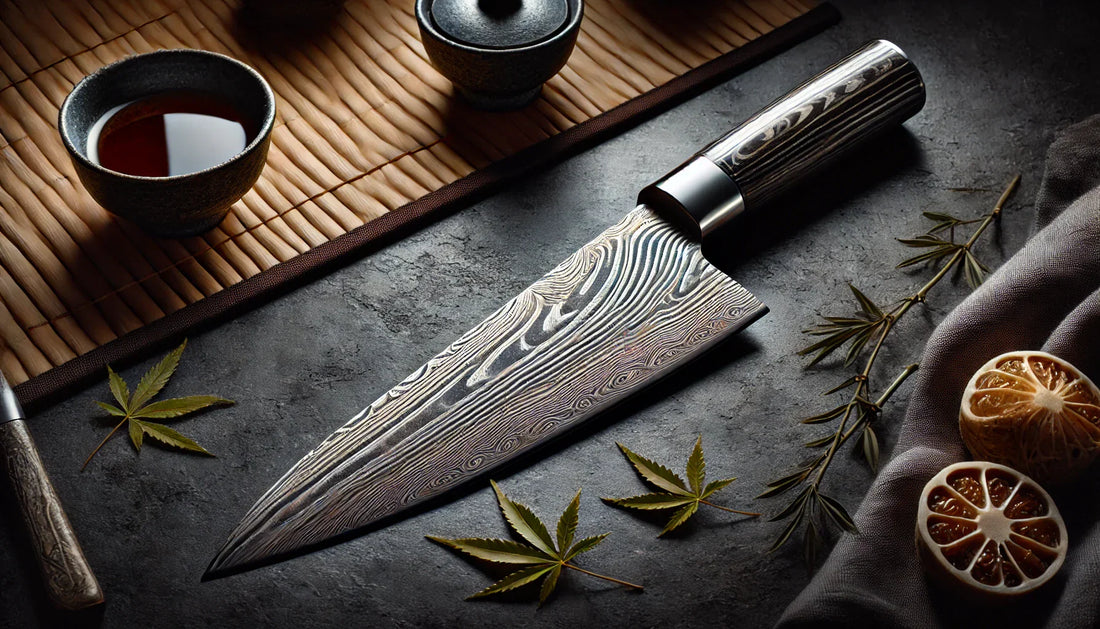
The Art of Damascus Steel in Chef’s Knives
Share
The Timeless Craft of Damascus Steel in Chef’s Knives
Damascus steel is renowned for its layered patterns, exceptional strength, and superior edge retention, making it a top choice for high-quality chef’s knives. In this post, we explore its rich history, intricate forging process, and why it remains one of the most sought-after materials in premium kitchen knives.
The Origins of Damascus Steel: A Legacy of Craftsmanship
Damascus steel dates back centuries, originally used to craft exceptionally strong and sharp weapons. Today, it is prized for the same durability and beauty, making it an ideal choice for precision kitchen knives.
The Art of Crafting Damascus Steel for Kitchen Knives
The creation of Damascus steel involves a meticulous folding and forging process, resulting in its signature wavy patterns and unparalleled strength. This craftsmanship is why Japanese Damascus knives are revered by chefs and collectors alike.
Why Damascus Steel Is Ideal for High-Quality Kitchen Knives
Damascus steel is known for:
✔ Exceptional Edge Retention – Stays sharper longer than many other materials.
✔ Rust Resistance – Combines durability with corrosion resistance.
✔ Striking Aesthetics – Each blade features a one-of-a-kind layered pattern.
These qualities make Damascus steel a preferred choice over stainless steel or carbon steel in premium chef’s knives.
Damascus Steel vs. Other Knife Materials: What Sets It Apart
How does Damascus steel compare to other blade materials?
✔ Vs. Stainless Steel – More visually distinct, holds an edge longer, but requires more care.
✔ Vs. Carbon Steel – Offers greater rust resistance while maintaining high sharpness and strength.
This unique combination of performance and artistry makes Damascus steel stand out in the kitchen.
Caring for Your Damascus Steel Knife
To preserve its edge and intricate pattern, follow these care tips:
✔ Use the Right Cutting Board – Wood or soft plastic to prevent dulling.
✔ Hand Wash Only – Avoid dishwashers to protect the steel’s integrity.
✔ Dry and Oil Regularly – Prevent rust and maintain the beauty of the blade.
Experience the Excellence of Damascus Steel with SEKKIN
With superior durability, edge retention, and craftsmanship, Damascus steel is a true investment for both home and professional chefs. Explore SEKKIN’s Damascus steel knives and discover the difference in every cut.
